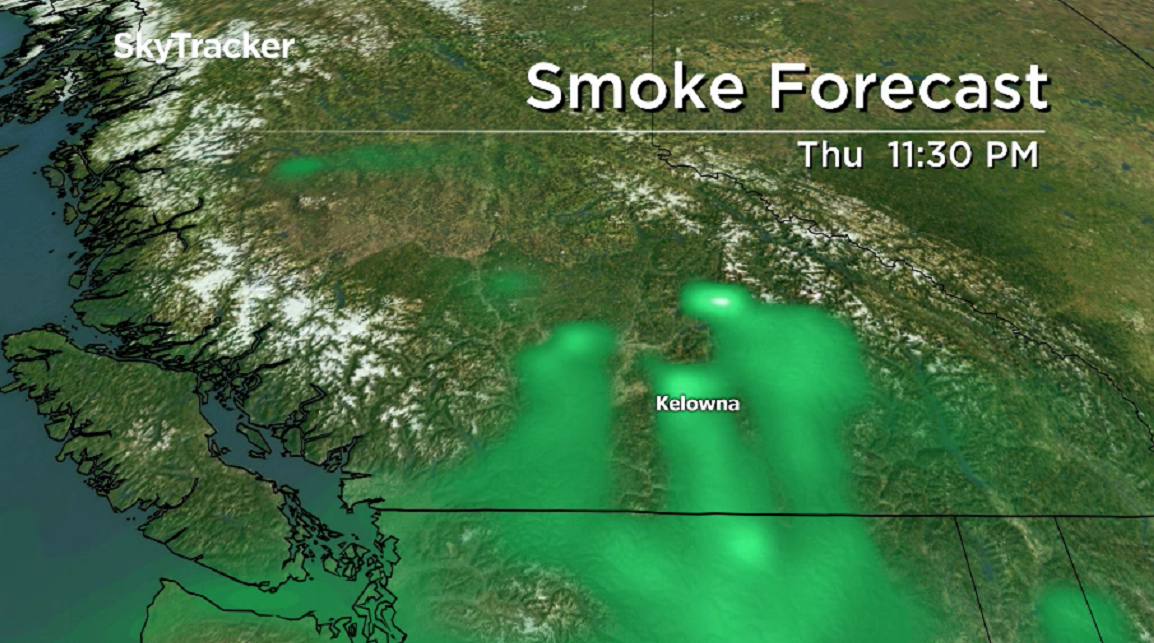After a much-welcomed break last weekend, wildfire smoke is once again blanketing B.C.’s wine country.

The break came when winds and rain rolled across the region, blowing away smoke that had been clouding the region for weeks.
But by Tuesday, wildfire smoke had begun rolling back in. On Wednesday, a smoky skies bulletin was issued for the Okanagan, and computer modelling shows no break for the next few days.
Environment Canada issued the smoky skies bulletin, and did so again on Thursday, stating “many regions of southern B.C. are being impacted or are likely to be impacted by wildfire smoke over the next 24-48 hours.”
In the Central Okanagan, residents woke up to a light dusting of ash.
According to provincial data, the air quality health index (AQHI) for the Okanagan is in the moderate health-risk range (5-6).

Get breaking National news
The AQHI has a 1 to 10-plus rating divided into four groups: low health risk (1-3), moderate health risk (4-6), high health risk (7-10) and very high health risk (10-plus).
Further, modelling from the website Firesmoke.ca is predicting an increase in wildfire smoke.

With that in mind, Environment Canada issued health reminders in its smoky skies bulletin.
“People with lung diseases, such as asthma and COPD, can be particularly sensitive to air pollution,” said the national weather agency.
“They will generally experience more serious health effects at lower levels. Pollution can aggravate their diseases, leading to increased medication use, doctor and emergency room visits, and hospital visits.
“Stay inside if you have breathing difficulties. Find an indoor place that’s cool and ventilated. Using an air conditioner that cools and filters air may help.
“If you open the windows you may let in more polluted air. If your home isn’t air-conditioned, consider going to a public place (library, shopping mall, recreation centre) that is air-conditioned.
“If you or those in your care are exposed to wildfire smoke, consider taking extra precautions to reduce your exposure. Wildfire smoke is a constantly-changing mixture of particles and gases which includes many chemicals that can harm your health.”







Comments
Want to discuss? Please read our Commenting Policy first.